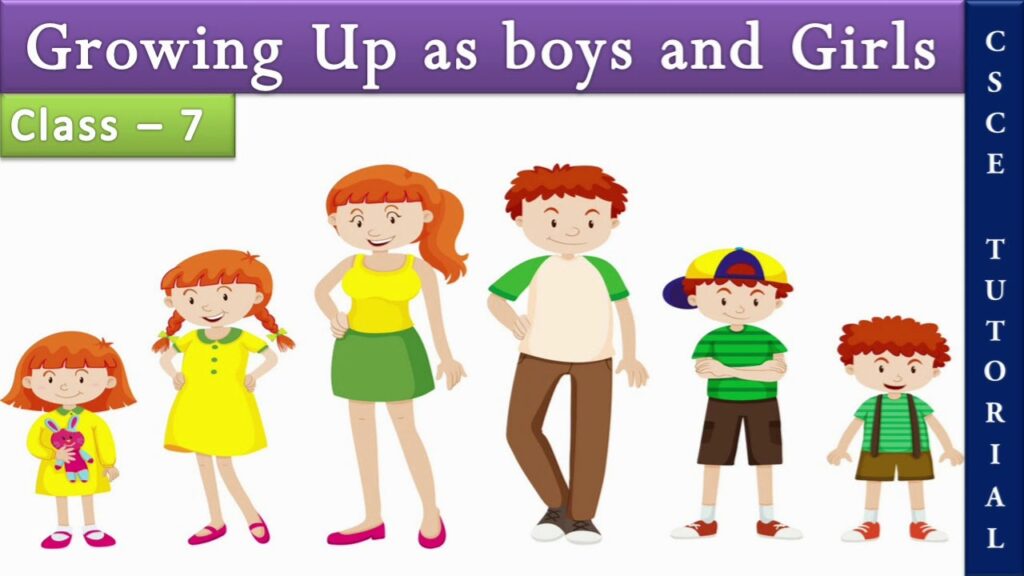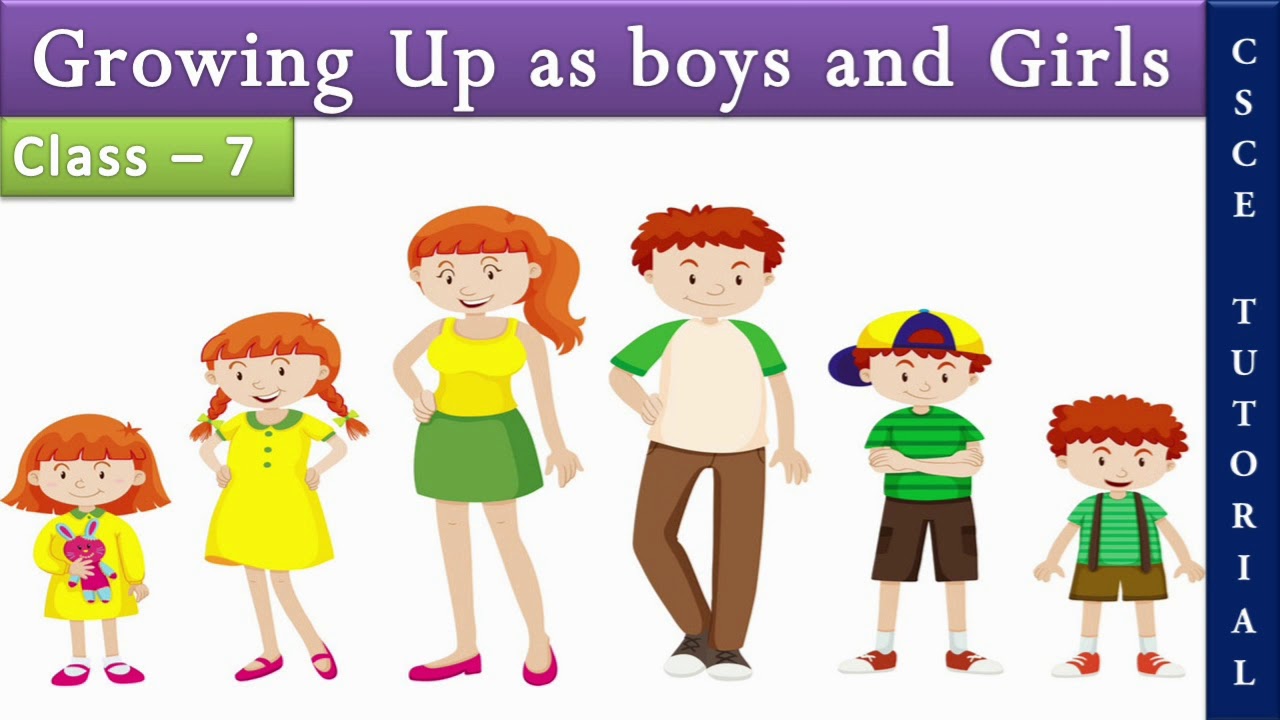
What is Growing Up? Navigating the Complexities of Adulthood
The phrase “growing up” often conjures images of birthdays, height charts, and the gradual accumulation of years. But what is growing up truly about? It’s a question that has plagued philosophers, psychologists, and parents for centuries. While the biological aspect is straightforward – the physical maturation from childhood to adulthood – the psychological, emotional, and social dimensions are far more nuanced and challenging to define. This article delves into the multifaceted nature of growing up, exploring its various stages, the challenges it presents, and the rewards it ultimately offers. We’ll examine how societal expectations, personal experiences, and individual choices shape our journey into adulthood and beyond.
The Physical Transformation
The most readily observable aspect of growing up is the physical transformation. Puberty marks a significant milestone, characterized by hormonal changes, the development of secondary sexual characteristics, and a growth spurt. These changes are driven by complex biological processes and vary in timing and intensity from person to person. While physical maturation is a necessary component of growing up, it’s important to remember that it’s only one piece of the puzzle. Physical maturity doesn’t automatically equate to emotional or psychological maturity.
Emotional and Psychological Development
Perhaps the most intricate aspect of growing up lies in emotional and psychological development. This involves learning to regulate emotions, developing a sense of self, forming meaningful relationships, and navigating the complexities of the human experience. It’s a lifelong process that is influenced by a multitude of factors, including family dynamics, peer interactions, cultural norms, and personal experiences.
Developing Emotional Intelligence
Emotional intelligence, the ability to understand and manage one’s own emotions and those of others, is a crucial skill that develops throughout growing up. It involves recognizing emotional cues, empathizing with others, and responding appropriately in various social situations. Individuals with high emotional intelligence tend to have stronger relationships, better communication skills, and greater resilience in the face of adversity. Nurturing emotional intelligence is essential for healthy growing up.
Forming a Sense of Identity
Erik Erikson, a renowned developmental psychologist, proposed that adolescence is a critical stage for identity formation. During this period, individuals grapple with questions of who they are, what they believe in, and what their place is in the world. This process often involves experimentation, exploration, and self-discovery. Successfully navigating this stage leads to a strong sense of identity, while failure can result in confusion and uncertainty. The journey of growing up is inextricably linked to the search for self.
Social Development and Responsibility
Growing up also entails learning to function effectively in society. This involves developing social skills, understanding social norms, and taking on responsibilities. As individuals mature, they are expected to contribute to their communities, participate in civic life, and adhere to the laws and regulations of their society.
The Influence of Social Norms
Social norms, the unwritten rules that govern behavior in a particular society, play a significant role in shaping the growing up experience. These norms dictate everything from how we dress and speak to how we interact with others and conduct ourselves in public. While social norms can provide a sense of order and stability, they can also be restrictive and perpetuate inequalities. Questioning and challenging outdated or harmful social norms is an important aspect of growing up.
Taking on Responsibility
A key indicator of growing up is the willingness to take on responsibility. This includes personal responsibility for one’s actions and decisions, as well as social responsibility for the well-being of others. As individuals mature, they are expected to be accountable for their behavior, contribute to their families and communities, and advocate for positive change. The acceptance of responsibility is a hallmark of adulthood.
Challenges and Obstacles
The path of growing up is rarely smooth. It is often fraught with challenges, obstacles, and setbacks. These challenges can range from academic pressures and peer conflicts to family problems and financial difficulties. Overcoming these challenges is an essential part of the growing up process, fostering resilience, problem-solving skills, and a deeper understanding of oneself.
Dealing with Failure
Failure is an inevitable part of life, and learning to cope with it is a crucial aspect of growing up. It’s important to view failure not as a reflection of one’s worth but as an opportunity for learning and growth. Developing a growth mindset, the belief that abilities and intelligence can be developed through dedication and hard work, can help individuals bounce back from setbacks and persevere in the face of adversity. [See also: Building Resilience in Young Adults]
Navigating Relationships
Relationships play a central role in the growing up experience. Learning to form healthy, meaningful relationships is essential for emotional well-being and social development. This involves developing communication skills, empathy, and the ability to navigate conflict constructively. Unhealthy relationships can be detrimental to mental health and can hinder the growing up process.
The Rewards of Growing Up
Despite the challenges, growing up also offers numerous rewards. These include increased independence, greater autonomy, the opportunity to pursue one’s passions, and the ability to make a meaningful contribution to the world. As individuals mature, they gain a deeper understanding of themselves, their values, and their purpose in life. This self-awareness can lead to greater fulfillment and a more meaningful existence.
Independence and Autonomy
One of the most appealing aspects of growing up is the increased independence and autonomy that comes with it. As individuals mature, they gain more control over their lives, their choices, and their destinies. This independence allows them to pursue their passions, explore their interests, and create a life that is aligned with their values. The freedom to make one’s own choices is a powerful motivator for growing up.
Finding Purpose and Meaning
Ultimately, growing up is about finding purpose and meaning in life. This involves identifying one’s values, pursuing one’s passions, and making a positive impact on the world. As individuals mature, they gain a deeper understanding of their strengths, their weaknesses, and their unique contributions. This self-awareness can lead to a more fulfilling and meaningful existence. The journey of growing up is a lifelong quest for purpose.
Conclusion: The Lifelong Journey of Growing Up
What is growing up? It is not a singular event but a continuous process of physical, emotional, psychological, and social development. It’s a journey marked by challenges, setbacks, and triumphs. It’s about learning to navigate the complexities of life, forming meaningful relationships, and finding one’s place in the world. It’s about embracing responsibility, overcoming adversity, and striving to become the best version of oneself. While the definition of “growing up” may vary from person to person, the underlying principle remains the same: it’s a lifelong journey of learning, growth, and self-discovery. The process of growing up is not something to be feared but embraced as an opportunity to learn, evolve, and contribute to the world around us. So, embrace the journey of growing up, learn from your experiences, and strive to become the best version of yourself. The world needs individuals who are willing to embrace the challenges and opportunities that come with growing up and contribute to a brighter future. Understanding what is growing up is the first step in navigating this complex yet rewarding journey. The true essence of growing up lies not just in the passage of time, but in the continuous evolution of our minds, hearts, and souls. This enduring process defines growing up in its most profound sense. The concept of growing up continues to evolve throughout our lives.

